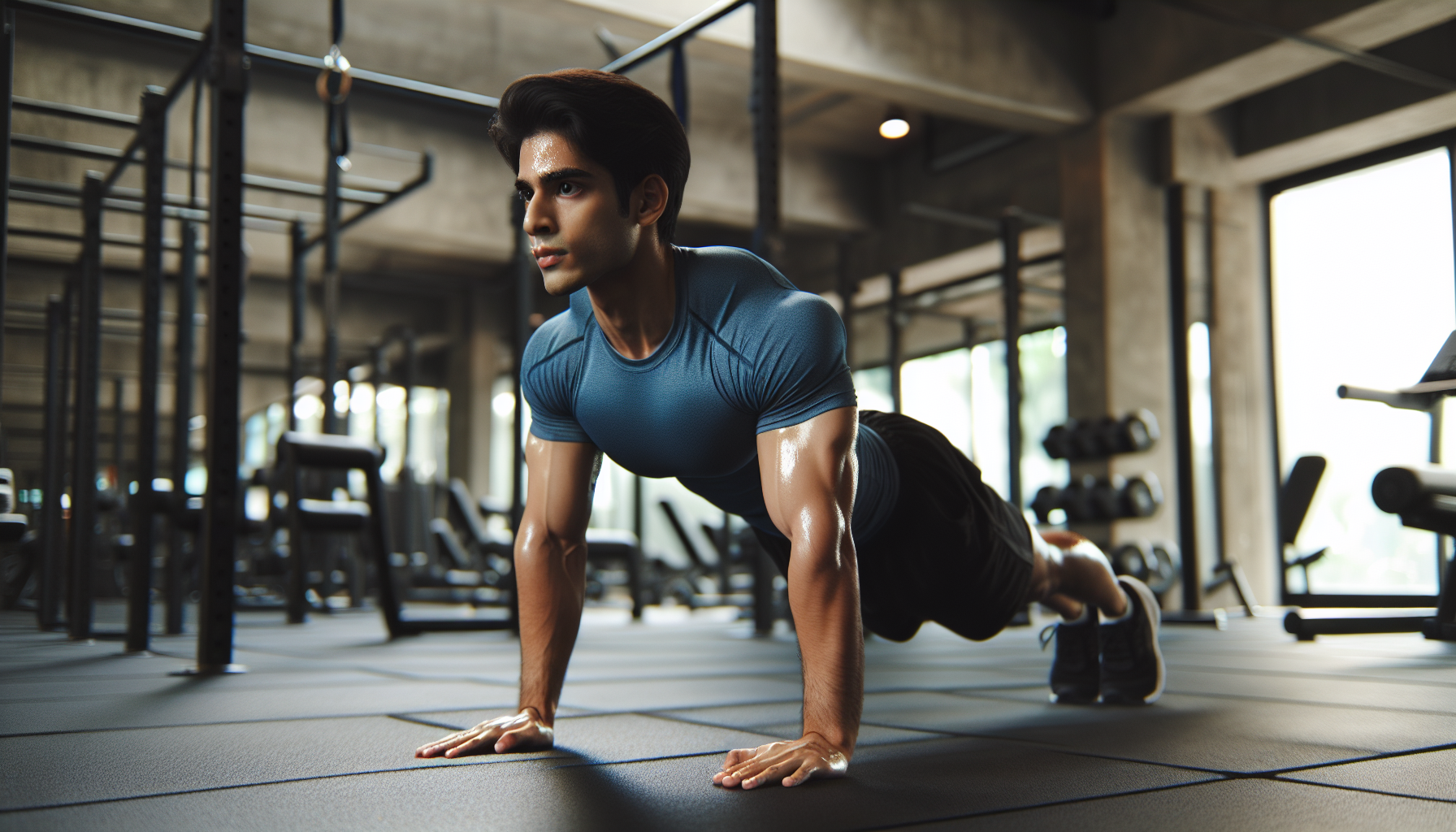Bodyweight exercises are a cornerstone of fitness, offering a versatile and effective means to build strength without the need for expensive equipment or gym memberships. These exercises not only enhance muscular strength but also promote overall fitness, which is pivotal for a healthy lifestyle. This comprehensive guide will delve into the myriad benefits of bodyweight training, provide a roadmap for incorporating these exercises into your routine, and discuss how to maximize their effectiveness for strength building.
The Foundation of Bodyweight Training
Bodyweight training is predicated on using one’s own weight to provide resistance against gravity. Exercises such as push-ups, pull-ups, and squats are staples of this approach. These movements engage multiple muscle groups, leading to improved muscular endurance, increased metabolism, and enhanced coordination.
One of the primary advantages of bodyweight exercises is their accessibility. They can be performed anywhere, from the comfort of your home to a local park, making them a practical option for maintaining a fitness regimen, especially when traveling. For insights on staying fit on-the-go, consult Strategies for Staying Fit While Traveling.
Moreover, bodyweight exercises are inherently adaptable, allowing for modifications to suit various fitness levels. Beginners can start with basic movements and gradually progress to more advanced variations, such as one-armed push-ups or pistol squats, as their strength and confidence grow.
Enhancing Functional Strength
Functional strength is about more than just muscle mass; it’s about training your body to handle real-life activities with ease. Bodyweight exercises are particularly effective at enhancing functional strength because they often involve compound movements that mimic everyday actions. For more on the importance of functional strength, visit Functional Strength Training for Better Quality of Life.
By engaging multiple joints and muscles simultaneously, bodyweight exercises can improve your ability to perform daily tasks, reduce the risk of injury, and contribute to a better quality of life. These benefits extend to various aspects of health, including Cardiovascular Health, as bodyweight routines often have a cardiovascular component when performed in a circuit or with minimal rest.
The Role of Progression and Variety
To continually challenge your body and encourage strength gains, it’s essential to progressively increase the difficulty of your exercises. This can be achieved by altering the leverage, adding movement complexity, or increasing the volume of your workouts. An example is progressing from a regular plank to a more challenging variation like the RKC plank, which involves tensing all your muscles to create maximal tension.
Incorporating a variety of exercises is also crucial to prevent plateaus and maintain motivation. This can include mixing in movements that target different muscle groups, alternating between upper and lower body exercises, or integrating dynamic movements like burpees for added intensity.
For a holistic approach to fitness that includes bodyweight training, consider exploring Essential Tips for Full-Body Workouts.
Recovery and Nutrition
Recovery is a vital component of any strength-building regimen. Adequate rest, hydration, and proper nutrition are all essential to repair and grow muscles. To optimize recovery, focus on consuming a balanced diet rich in protein, complex carbohydrates, and healthy fats. Additionally, staying hydrated is critical for muscle function and overall health. For in-depth information on the role of recovery, check out The Role of Hydration in Exercise Recovery.
External Resources for Deepening Your Understanding
To deepen your understanding of bodyweight exercises and their benefits, it’s worthwhile to explore niche resources that provide specialized insights:
- ExRx.net offers an extensive library of exercises, including bodyweight movements, with detailed instructions and muscle group analyses.
- ACE Fitness provides research-based exercise information and examples of bodyweight workouts designed by certified professionals.
- PubMed is a valuable resource for accessing scientific studies on the efficacy of bodyweight training and its impact on strength and health.
Utilizing these resources can provide you with the scientific backing and practical guidance necessary to craft an effective bodyweight exercise routine tailored to your goals.
Incorporating Mindfulness and Focus
Mindfulness and focus play a significant role in the execution of bodyweight exercises. Being mentally present during your workouts can lead to better form, increased muscle activation, and a deeper mind-muscle connection. This holistic approach to exercise not only enhances physical outcomes but can also promote mental well-being.
Conclusion
Bodyweight exercises are a powerful tool for building strength and improving overall fitness. By leveraging the principles of progression, variety, and mindfulness, individuals can create a sustainable and effective exercise routine that adapts to their evolving fitness levels. Whether you’re looking to enhance your functional strength, maintain fitness while traveling, or simply pursue a healthier lifestyle, bodyweight training offers a flexible and cost-effective solution.
Remember, the journey to strength building is a personal one, and bodyweight exercises provide the versatility to tailor your workouts to your specific needs and goals. Embrace the challenge, enjoy the process, and watch as your strength and confidence soar.



